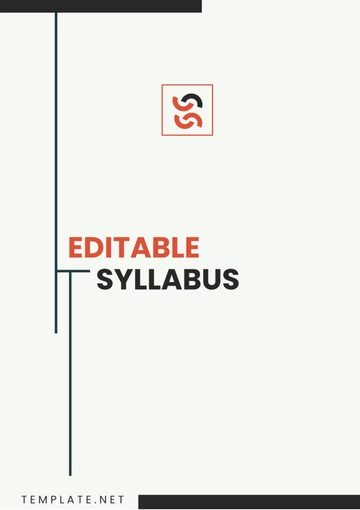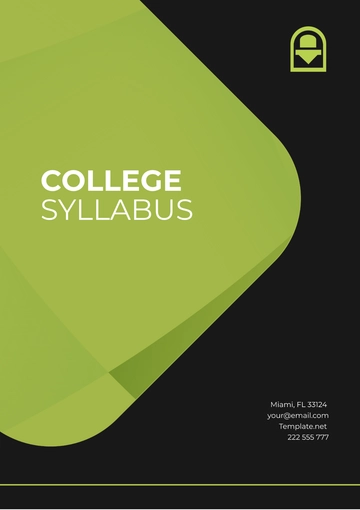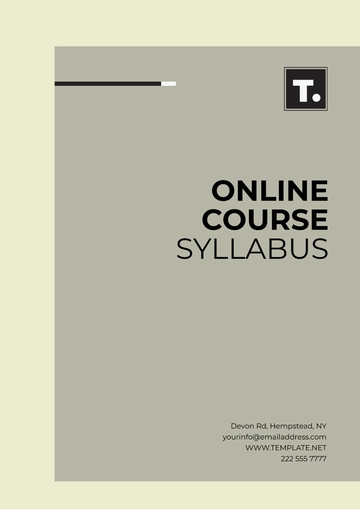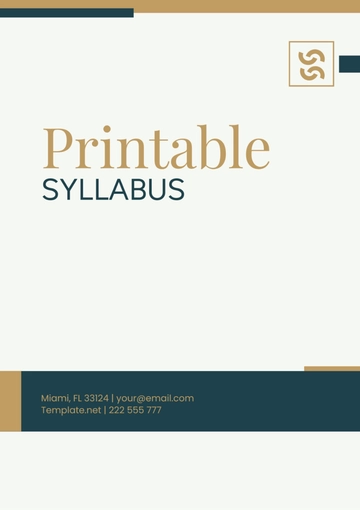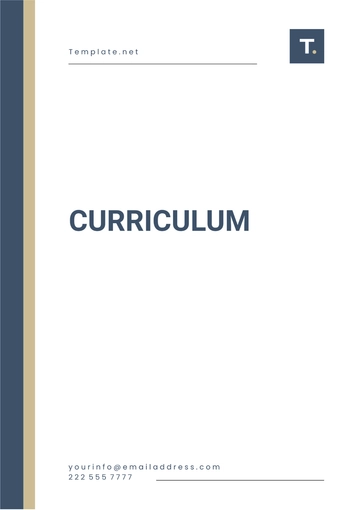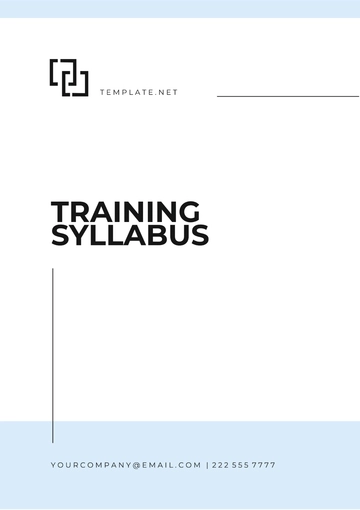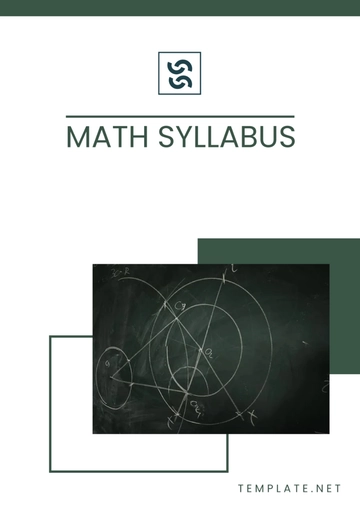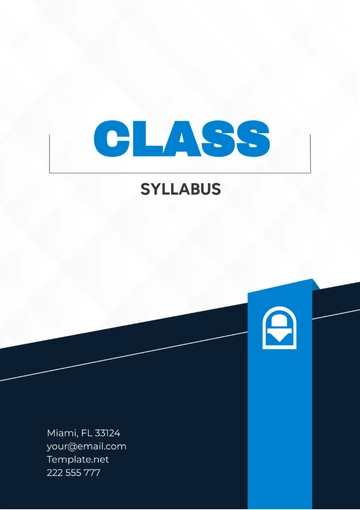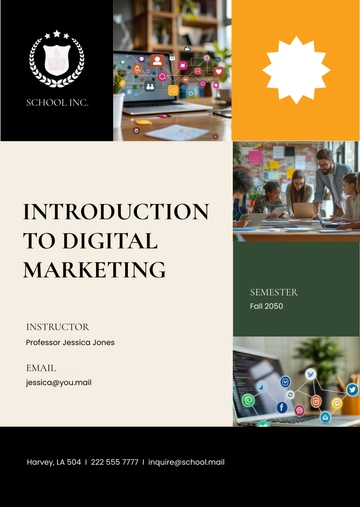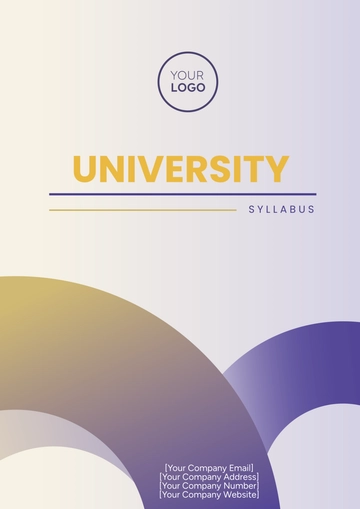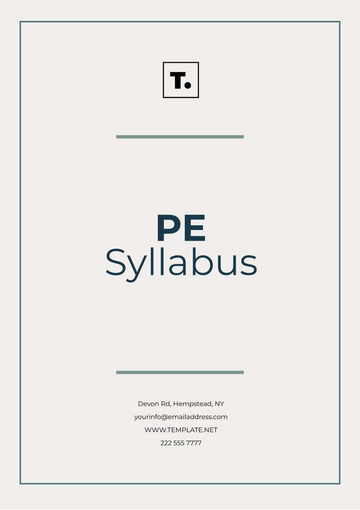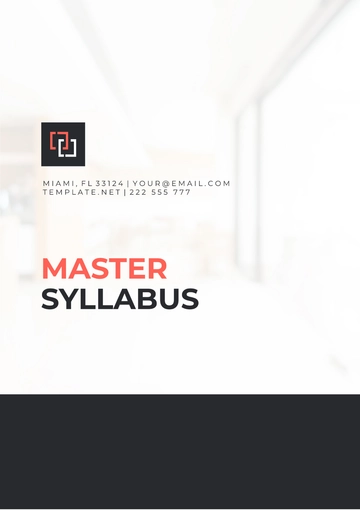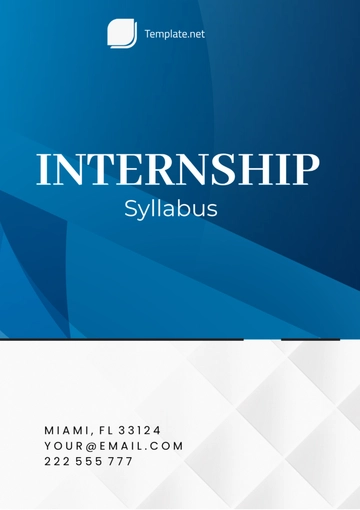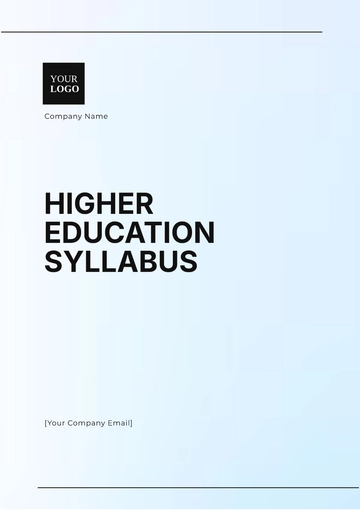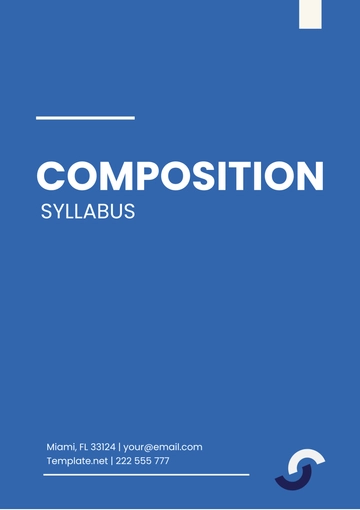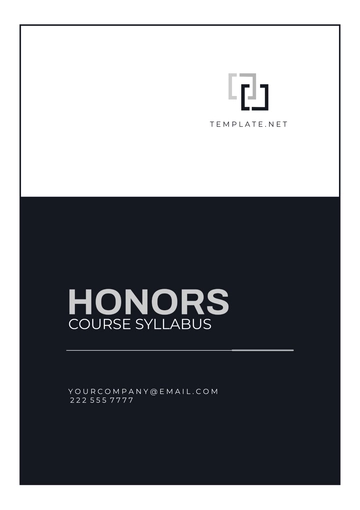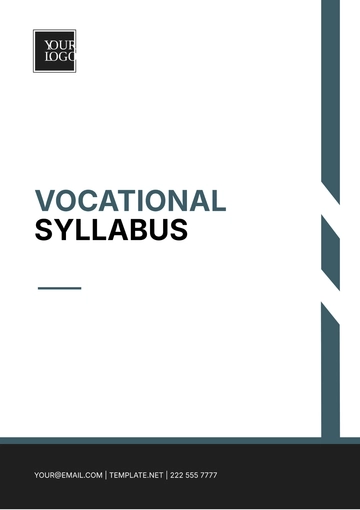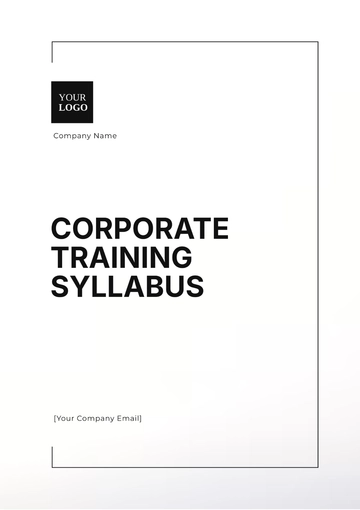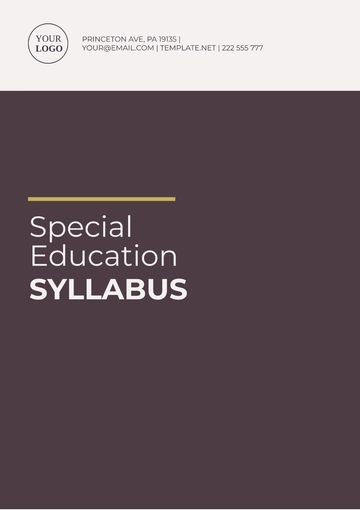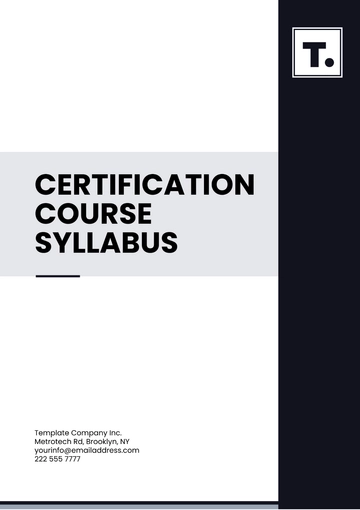Free Biomedical Engineering Syllabus
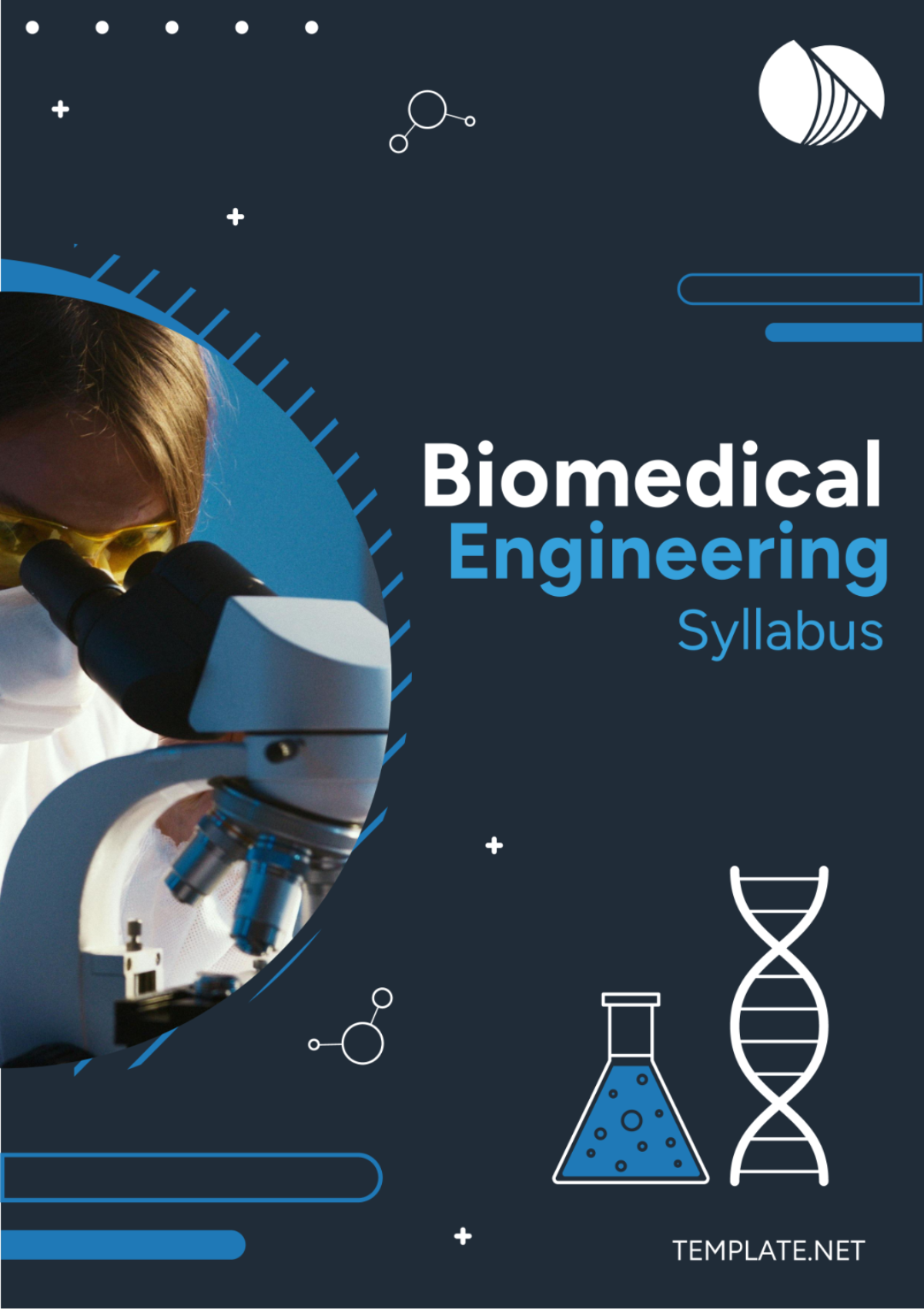
BIOMEDICAL ENGINEERING COURSE
Course Title | [COURSE TITLE] |
Course Code | [COURSE CODE] |
School Hours | [SCHOOL HOURS] |
Class Location | [CLASS LOCATION] |
Class Time | [CLASS TIME] |
Class Duration | [DATE] - [DATE] |
1. Course Description
This course provides an overview of biomedical engineering, exploring the intersection of medicine and engineering principles. It introduces the basic concepts and approaches used in biomedical engineering and discusses various sub-fields and applications. By the end of this course, students should have a solid foundation in biomedical engineering and a clear understanding of the role biomedical engineers play in healthcare systems.
2. Instructor Information
Professor: [YOUR NAME]
Email: [YOUR EMAIL]
3. Learning Objectives
Understand the role of a biomedical engineer and the various sub-fields of biomedical engineering.
Gather fundamental knowledge on core biomedical engineering principles and concepts.
Apply these principles to analyze biomedical systems and processes.
Develop skills to design and conduct experiments in biomedical engineering, and analyze & interpret data.
Demonstrate effective oral and written communication skills, especially in conveying complex biomedical engineering concepts.
4. Course Schedule
Week | Topic | Assignments |
|---|---|---|
1 | Introduction to Biomedical Engineering | Assignment 1: Write a report on different sub-fields of biomedical engineering |
2 | Biomechanics | Assignment 2: Analyze biomechanical systems |
3 | Biomaterials | Assignment 3: Research and present on biomaterials |
4 | Medical Imaging | Assignment 4: Critically evaluate medical imaging techniques |
5 | Biomedical Signal Processing | Assignment 5: Apply signal processing techniques to biomedical data |
6 | Tissue Engineering | Assignment 6: Design a tissue engineering experiment |
7 | Regulatory Affairs in Biomedical Engineering | Assignment 7: Discuss regulatory considerations in biomedical engineering |
5. Required Reading and Materials
Introduction to Biomedical Engineering (3rd Edition) by John Enderle and Joseph Bronzino.
Biological Materials Science: Biological Materials, Bioinspired Materials, and Biomaterials by Marc Meyers and Po-Yu Chen.
Biomedical Signal and Image Processing (2nd Edition) by Kayvan Najarian and Robert Splinter.
Several research papers and articles that will be provided throughout the course.
A scientific calculator and lab coat for practical sessions.
6. Assignments and Assessments
Assignment 1-5: Students will work on various assignments throughout the course designed to deepen their understanding of major concepts.
Midterm Exam: The midterm exam will evaluate students' understanding of all the course material covered in the first half of the semester.
Final Exam: The final exam will cover all coursework and is designed to evaluate students' overall understanding of the course material.
7. Course Policy
Attendance: Regular attendance is expected. All students need to attend at least 80% of the lectures to pass the course.
Participation: Active participation during lectures is expected. Discussions contribute significantly to a fuller understanding of the course material.
Grades: Grades will be based on timely submission and quality of assignments, as well as performance in the midterm and final exams.
Academic Honesty: Academic honesty is expected of all students. Any suspected case of academic dishonesty will be reported and could result in a failing grade for the course.
Course materials: Sharing of course materials is encouraged for educational purposes but selling these materials or using them for commercial purposes is strictly prohibited.
8. Grading Policy
Grading Component | Weight |
|---|---|
Participation | 15% |
Assignments | 40% |
Midterm Exam | 20% |
Final Exam | 25% |
Disclaimer
The information presented in this syllabus serves as a guideline for the course but is subject to potential modifications at the instructor's discretion. While every effort will be made to adhere to the outlined schedule and content, unforeseen circumstances or adjustments to enhance learning may necessitate changes. Any alterations to the syllabus will be promptly communicated during class sessions and via email to ensure all students are informed. Your understanding and flexibility in this regard are greatly appreciated.
- 100% Customizable, free editor
- Access 1 Million+ Templates, photo’s & graphics
- Download or share as a template
- Click and replace photos, graphics, text, backgrounds
- Resize, crop, AI write & more
- Access advanced editor
Introducing the Biomedical Engineering Syllabus Template from Template.net – an editable and customizable solution tailored for academic excellence. Crafted to streamline curriculum planning, it's seamlessly editable in our Ai Editor Tool, offering unparalleled flexibility for educators. Elevate your teaching experience with this comprehensive template today.

